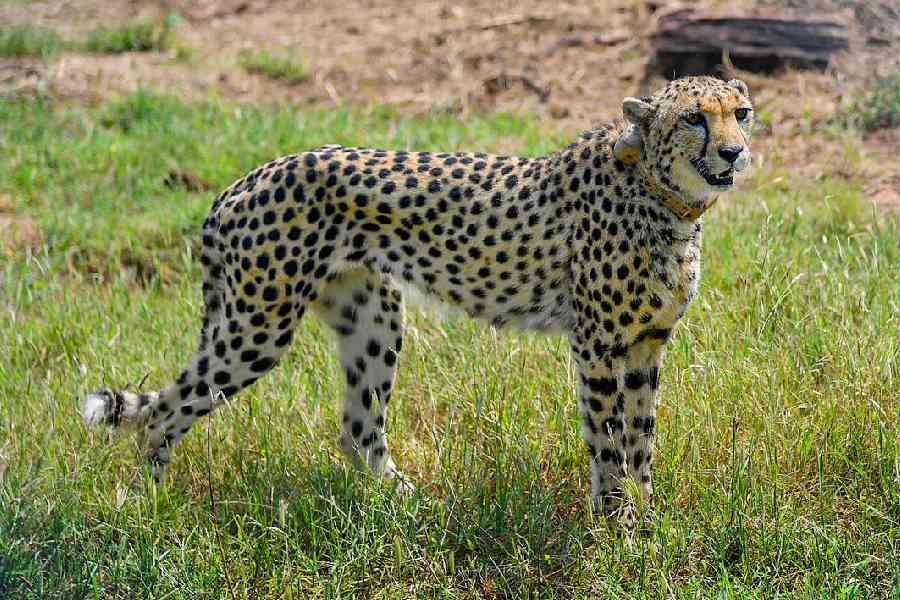The mother cheetah in the Kuno National Park has resisted attempts by wildlife staff to reunite her with her lone surviving cub, stirring concerns among scientists whether the cub would need to be human-raised and lose a future in the open wild.
The resistance posed by the mother cheetah, while not entirely unexpected given the cub’s separation from the mother a month ago, represents a fresh challenge that wildlife biologists need to address while managing young cheetah cubs in captivity, scientists and officials said.
The female cub is the lone survivor from a litter of four born to a Namibian cheetah in Kuno in March this year. Three cubs died on May 23 from malnutrition, dehydration and heat and veterinarians had separated the fourth cub — also ill — from the mother to nurse it back to health.
Under the vets’ care the cub has done well. But after it had gained weight and appeared well enough to be reunited with its mother around June 5, wildlife staff encountered what appears to be resistance by the mother to accept the cub.
Scientists are hoping the mother and cub will reunite as quickly as possible. “The mother cheetah had shown aggression towards the cub once, but this does not mean she has rejected the cub,” said Qamar Qureshi, a scientist at the Wildlife Institute of India, Dehradun, and member of an advisory panel guiding India’s cheetah introduction project.
Qureshi and other wildlife biologists who specialise in large cats said the mother’s resistance is not surprising given that the cub had been kept away from the mother for about a week to stabilise its health condition and provide nutrition and care.
“The process of reuniting is done gradually. The cub and the mother are now kept in adjacent enclosures and we see a lot of progress in their interactions,” Qureshi told The Telegraph on Sunday. “A call will be taken at the right time to release them in the same enclosure based on ground observations.”
But wildlife biologists say the sooner the mother accepts the cub, the greater the chance that the cub will not need to be human-raised. “The mother’s support is critical for the cub at this young age to learn the ways of being a cheetah,” said Ravi Chellam, a large cat specialist and coordinator of the Biodiversity Collaborative, a network of conservation researchers.
Two cheetah specialists based in Africa said the longer the mother-cub separation, the less chance that the cub would learn what it needs to for survival in the wild.
“If the mother is not feeding and teaching the cub to eat meat, it is dependent on humans,” one of the specialists told this newspaper. “Without such support, it is not possible to put them in the wild. Such cubs would not have learned hunting and other survival skills — they learn by watching the mother.”
The cub may need to be hand-raised if the mother does not accept it soon, said Vincent van der Merwe, the coordinator of a cheetah population management project in South Africa who is also guiding the Indian project.
“If they’re not mother-raised, they don’t turn out to be good mothers themselves. When females have only one cub left, they almost always abandon them. There is only a small chance that the cub will be successfully wilded and become ecologically functional,” van der Merwe said.
A wildlife official said the project staff members were watching and hopeful. The project’s long-term goal is to establish clusters of cheetah populations in open unfenced wildlife sanctuaries at multiple sites across the country.
India had flown in nine cheetahs from Namibia in September last year and 12 from South Africa in February this year. Three adult cheetahs have also died since March from different causes. Scientists and officials have asserted that the cheetah deaths, while unfortunate, do not represent a setback to the project’s long-term goal.

